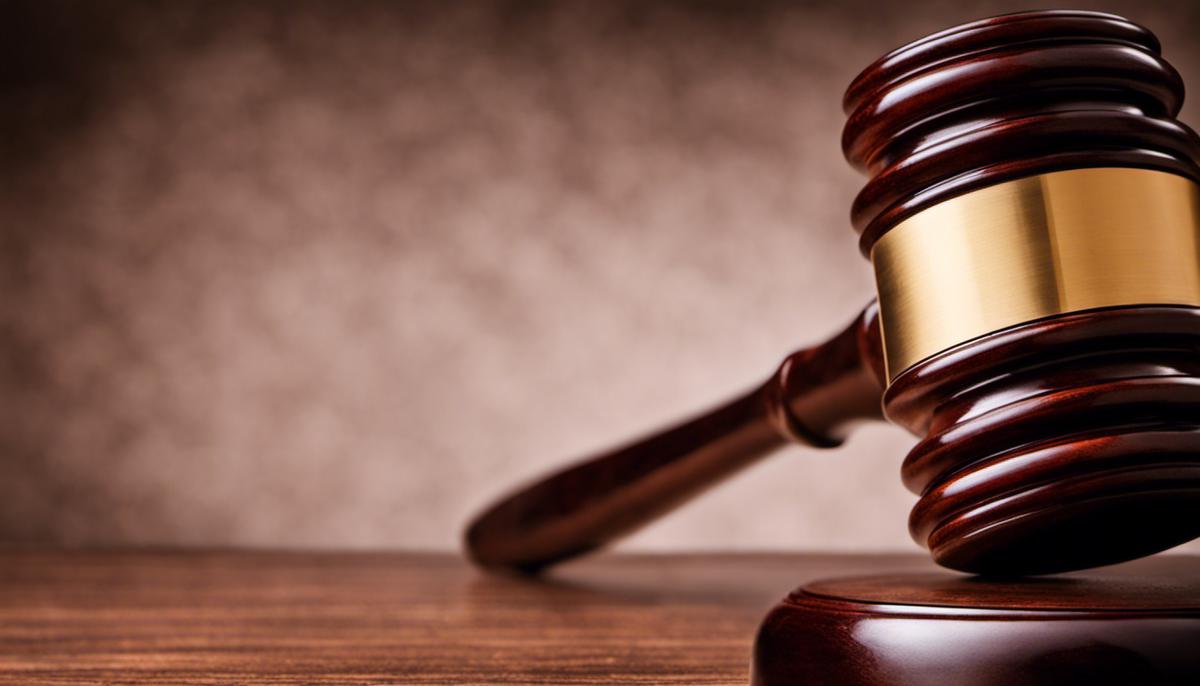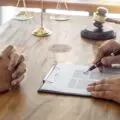
15 Nov What Is a Legal Objection During a Deposition?
Legal procedures can often be tangled in complex terminologies and principles. One such concept is the concept of a legal objection during a deposition, a critical component of the legal dispute resolution process. Legal objections serve to ensure the decorum of testimonies given, prevent legally irrelevant or inappropriate questions, and maintain procedural fairness. Throughout this discourse, we aim to provide a comprehensive understanding of the nature and purpose of legal objections, as well as how they function within the bounds of a deposition.
Nature and Purpose of a Legal Objection During a Deposition
In the intricate field of litigation, depositions are one of the many critical, specialized tools employed by attorneys to shape the course of a legal dispute. Fundamental to the deposition process, and in fact the entire legal process, is the convention of objecting. This practice, though commonly perceived as frivolous or obstructive to the uninitiated, holds an indispensable purpose within the legal landscape.
Legal objections, in essence, are formal challenges interposed by attorneys in response to questionable lines of questioning, proposed evidence submission, or courtroom procedures. Evidently, these serve as the frontline of battle in adversarial proceedings, tasked with fortifying a case and preventing potential transgressions of an adversary.
As it pertains to depositions, objections fulfill several critical purposes all intertwined in the delicate fabric of justice. Foremost, they serve to preserve the attorney’s client’s rights, a paramount obligation of any attorney under the American Bar Association’s Model Rules of Professional Conduct.
Attorneys utilize objections during depositions to deter and eliminate inappropriate questioning, thereby safeguarding their client’s rights. This feature is indispensable in depositions, where the scope of permissible questioning is broader than trial settings. Objections ensure that the questions remain within the bounds of propriety and relevancy while avoiding undue embarrassment, annoyance, oppression, or undue burden to the deponent.
Preserving Justice
Moreover, crucial to the preservation of justice and fairness in proceedings, objections exist to uphold the often intricate rules of evidence. This facet ensures that only reliable, relevant, and non-prejudicial evidence informs the fact-finding process, enhancing the accuracy of legal verdicts. Objections can exclude hearsay, opinion testimonies, privileged communications, and other forms of unsound evidence.
Lastly, objections provide a critical preservation function. In the context of depositions, attorneys state objections to create an evidentiary record. This action ensures that trial courts, and subsequent appellate courts if necessary, can precisely review the context of any problematic questioning or evidence. By preserving the objection for later argument, attorneys effectively secure their client’s rights and the integrity of the legal proceedings.
In navigating the complicated terrain of legal proceedings, depositions offer attorneys a valuable tool for information-gathering. Within this tool, a legal objection during a deposition constitutes a vital mechanism that safeguards clients’ rights, upholds the rules of evidence, and preserves points for future review. Though the process may occasionally appear excessive to the lay observer, the objecting attorney acts as both a shield and a sword in the ceaseless quest for truth and justice.
Common Legal Objections in Depositions
The Pivotal Role of Legal Objections in Depositions: A Deeper Examination
In the dynamic cogs of legal machinery, depositions hold a critical position. During these pre-trial oral testimonies, precise objections maintain the equilibrium. Interestingly, while objectives vary broadly, a handful of them recur frequently, demonstrating their crucial role in shaping judicial outcomes.
One substantial objection often raised is relevancy. The Federal Rules of Evidence (FRE) mandates that information sought must be germane to the matter pending, or ‘Rule 401 Test for Relevant Evidence.’ Essentially, unless the information makes a fact more or less likely than it would be otherwise, an objection of irrelevance can promptly quash its disclosure.
Next on the list is ‘Hearsay.’ Already expounded upon in the previous section, hearsay objections assert that an out-of-court statement is being offered to advance the truth of the matter asserted therein. While complex and laden with notable exceptions, utterance of the word ‘hearsay’ calls for a calculated pause in proceedings, forcing an assessment of the evidence’s inherent reliability.
Complexity also defines ‘Objection, Form,’ a commonly raised issue. This morphing objection points to myriad potential problems with a question’s structure or content that could render an answer misleading or unintelligible. Vague, argumentative, leading or compound questions, questions assuming facts not in evidence, or calling for speculative answers often draw this objection. Tending to oral hygiene now can save substantial trouble later.
Additionally, ‘Privilege’ rears its head frequently during depositions. As an established right protecting certain communications from disclosure, privileged objections uphold societal interests over the court’s pursuit of truth. Attorney-client privilege, doctor-patient privilege, and marital privilege pivotally impact deposition dynamics, commanding respect for societal values embodied therein.
Finally, invoking ‘the Rule’ is a sophisticated method of objection. Here, FRE 615 (‘Excluding Witnesses’) comes into play when a party tries to keep witnesses from hearing others’ testimonies, thereby preventing collusion and preserving testimony’s integrity.
The frequency of these legal objection during a deposition underscores their influential role in deposition proceedings. The way they are handled can not only alter the deposition’s trajectory but also ripple through negotiations, settlement discussions, and the trial itself.
Indeed, objections constitute the pivot around which depositions swing. As shields against inappropriate questions and protectors of privilege, or as firefighters tending to dying embers of relevance, these objections embody the balance that courts seek to achieve in justice administration. They are the thin line separating chaos from order in legal proceedings, standing as firm pillars supporting jurisprudence.
Impact of Proper and Improper Objections
Given the vital roles that objections play in depositions, the meticulous deployment of proper objections and the grave impact of improper ones warrants our scrutiny. The undercurrents of these objections possess the unique distinction of drastically influencing the outcome of depositions, setting the stage for what transpires in the trial and appellate courts.
Relevancy objections, for instance, act as strategic gears in the legal machinery. By challenging questions or evidence deemed irrelevant to the case, attorneys prevent the deposition from deviating into an abyss of inconsequential matters, effectively shaping the narrative. These objections buttress the efficiency of the proceedings, keeping the deposition on its intended course. Improper relevancy objections, however, disrupt the spirit of the deposition, potentially depriving the opposition of pertinent information necessary for establishing their case.
Hearsay objections bear their own significance. Statements made outside of the court under analysis are often denied entry owing to their inherently unreliable nature. Existing within this labyrinth are a host of exceptions. Certain statements, despite being hearsay, are permitted due to their inherent reliability, considerably impacting the weight of the evidence. Misunderstanding or disregarding these exceptions may result in an unfair and imbalanced deposition.
The contours of objection to the form in questioning might appear less profound, but their precision is crucial. No question should be ambiguous, double-barreled, compound, or phrased to assume facts not in evidence. Attorneys who master this aspect maintain a controlled environment in the deposition room, preserving a fair and clear pursuit of truth. Conversely, improper objections can create a murky atmosphere, generating confusion that can manipulate the flow of information.
Delving into privilege objections, the task undertaken is to safeguard certain communications from disclosure. Conversations with attorneys, medical practitioners, and the sanctity of a marital discourse, among others, are shielded by these objections. Using them properly provides a necessary level of confidentiality, allowing certain truths to unfold without infringing upon privacy rights. Yet, the consistent misuse of privilege objections could propel a negative influence, obstructing just proceedings.
Entering into the territory of the Federal Rules of Evidence (FRE 615), “the Rule” allows for the exclusion of witnesses from the hearing to negate influence from others’ testimonies, thereby fostering an unprejudiced deposition environment. As this rule holds a much-treasured niche in deposition strategy, its misuse understandably has detrimental effects.
The Bottom Line
In an overarching view, the usage of these ambitious objections wields immense influence over deposition proceedings. Each objecting swordstrike generates ripples across the legal battlefield, molding the case as it advances towards trial. Proper objections assert control over the deposition’s narrative, protect privacy rights, eliminate irrelevant discussions, and foster airtight evidentiary foundations. In a stark contrast, improper objections loom like specters over the deposition proceedings, casting a shadow that looms large over the pursuit of truth and justice.
Given the strategic importance and potential impact of legal objections, it is critical for participants in a deposition to comprehend the appropriate use of these legal tools and be aware of the consequences of improper objections. The process of objection is not simply an outcry during testimony; but an art of safeguarding interests, rights, and maintaining procedural fairness in the deposition. Therefore, careful considerations must be exercised to ensure that every objection raised is purposeful, just, and advantageous. Indeed, a thorough understanding of a legal objection during a deposition can prove instrumental in navigating the intricacies of depositions.








